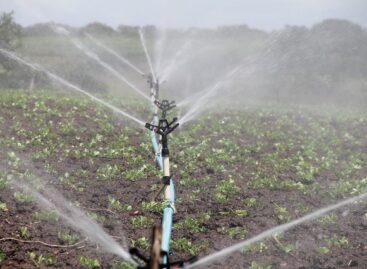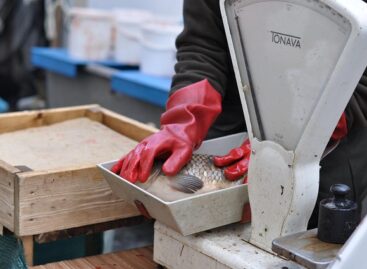Many products are expected to become more expensive due to the drought
This year’s drought summer dealt a heavy blow to Hungarian agriculture, causing significant crop losses for several crops. Speaking to Pénzcentrum, the editor-in-chief of the Agrárszektor, Lajos Braunmüller, said that as a result of this, we can expect food prices to rise in the coming months. We will experience one of the biggest price increases for bread and apples, in the case of the latter, Hungary has been in need of imports for years.

The price of high-quality edible wheat rose to HUF 75,000-90,000 per ton by mid-September. The quality of this year’s crop has dropped significantly: only 20% of the grain is suitable for making quality flour, which explains the increase in the price of mill raw materials. Zsófia Pótsa, the secretary general of the Association of Hungarian Grain Processors, Feed Manufacturers and Traders, highlighted that the mills were able to purchase raw materials at a much higher price compared to last year, as the price difference between mill and feed wheat is increasing.
Not only will the price of bread rise due to the drought, but other basic foods may also become more expensive. In addition to cereals, corn, apples, table grapes and fish also suffered significant yield losses. Although wine may be an exception, as the price increase may be more moderate here due to accumulated stocks and declining consumption, for most agricultural products, imports may provide relief from the increase in prices.
This year’s apple harvest was also significantly reduced, fewer fruits ripened than expected, as the drought did not favor ripening. The supply of apples is not only unable to cover the needs at the domestic level, but it also cannot provide a meaningful export volume. For this reason, large quantities of imported apples have been arriving in Hungary for years, mainly from Poland, Austria and Italy, where producers have carried out serious plantation improvements in the past decade.
According to Lajos Braunmüller, the loss of crops and the rise in prices due to this year’s drought may also pose significant challenges for Hungarian agriculture in the longer term. Due to the decrease in production and the more efficient methods of competitors, more and more products on the domestic market have to be replaced by imports. Increasing efficiency and stabilizing the production volume may be crucial for the Hungarian agricultural sector in the coming years, despite changing weather conditions.
Related news
Farmers can count on the government in the fight against drought
🎧 Hallgasd a cikket: Lejátszás Szünet Folytatás Leállítás Nyelv: Auto…
Read more >Related news
GDP growth in OECD member countries slowed to 0.3 percent in the last quarter of last year
🎧 Hallgasd a cikket: Lejátszás Szünet Folytatás Leállítás Nyelv: Auto…
Read more >Change in Rossmann Hungary’s leadership: Kornél Németh decided to move towards new challenges in 2026
🎧 Hallgasd a cikket: Lejátszás Szünet Folytatás Leállítás Nyelv: Auto…
Read more >









